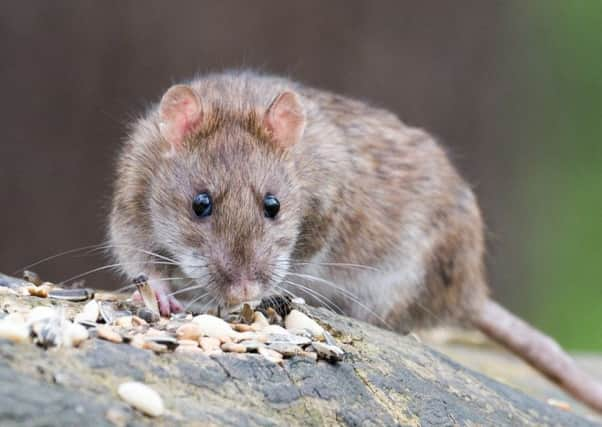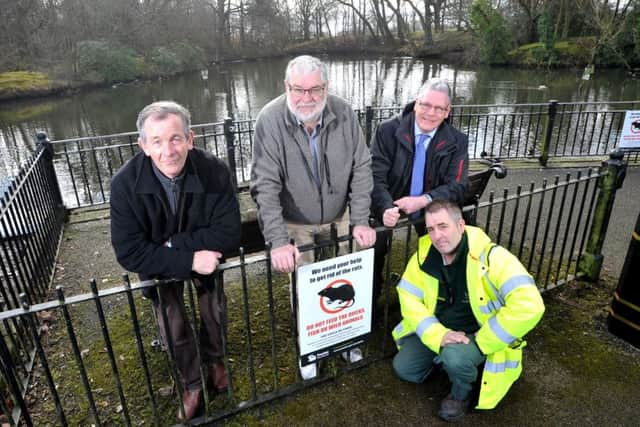Funding cuts leave Preston's rat catchers struggling to cope


Data provided to the Post shows that pressure is mounting on Preston Council, who were called out to 877 rat incidents in the last 11 months – almost three a day.
It was also revealed that there are only three pest controllers for the whole city and the team has been halved over the last eight years.
Advertisement
Hide AdAdvertisement
Hide AdOne pensioner has told of how they were forced to pay out of their own pocket last month to deal with a rodent infestation so bad it was keeping them awake at night.


The resident of sheltered accommodation at Sunningdale, Broughton – who does not want to be named – said: “I was told the inspectors could come out in three and a half weeks.
“I told my son about this and we decided it wasn’t good enough; he kindly gave me £150 to bring in a private contractor. It’s a lot of money for a pensioner.
“I was being kept up throughout the night with them scurrying about; it was distressing.”
Advertisement
Hide AdAdvertisement
Hide AdShe added: “Things like this are a health issue. You are at risk of catching serious diseases and potentially dying.”


Fellow Sunningdale resident Ron Entwistle said: “The ladies whose homes are infested can hear them at night. It’s scaring them and upsetting their pets who can hear them all the time.”
A spokesman from the Community Gateway, which runs the sheltered accommodation, said that a pest control technician visited Sunningdale in early February and resolved the issue.
They added: “No further actions were recommended for CGA to carry out and we have not received any further reports of any issues from any of the residents at Sunningdale.”
Advertisement
Hide AdAdvertisement
Hide AdPreston Council is one of the few remaining councils that offer a free rat-catching service, however council bosses have acknowledged that the high demand, coupled with cuts to the team, is leading to longer waits for services.
Cabinet member for planning and regulation, Coun Peter Moss, said: “Preston is one of the few remaining councils choosing to offer a free ‘at point of use’ service to residents, but that in turn increases demand. We acknowledge the service is no longer able to operate in the manner it has done in previous years due to Central Government cuts and austerity.”
Rats themselves are deemed to be a public health pest by the council because they contaminate food, carry diseases and cause damage by gnawing, burrowing, and digging their way around their homes.
Coun Moss added: “We received a request for treatment at Sunningdale, and agreed an appointment date for 13 February.
Advertisement
Hide AdAdvertisement
Hide Ad“The council has an obligation to ensure occupiers keep their land free of rodents – which can be achieved by regulation and enforcement.”
Baiting is reducing call-outs
The rat population in Preston peaked a decade ago in 2008, with over 1,400 requests for service received by the city council.
Since then, the number of requests for the service has dropped slightly each year in line with increased sewer baiting activity of the pest control team.
Despite this, a spokesman from Preston Council said: “Despite our efforts to reduce the population at large, the biggest reason for the problem persisting is rubbish, the amount of it and sometimes careless disposal of it. Whether it’s deliberate or accidental littering, disease-carrying rodents thrive on it.”
Advertisement
Hide AdAdvertisement
Hide AdIn recent years, warning signs were dotted throughout Moor Park telling park visitors to ‘Stop Feeding the Rats’, with bread being laid down for ducks being prime feeding for rats and mice.
Last year the council spent £16,500 on its sewer baiting policy, a figure matched by United Utilities. The policy sees rodent hot spots mapped on a geographic information system to carry out ways to reduce the rat population.
A spokesman from Preston Council said: “It is the most effective thing the team does in terms of keeping numbers down, although we are aware that since reducing the team to only three staff, waiting times in the summer can extend beyond our usual 10 working day response target – something we regret, but we’re doing the best we can with what we have.”
How not to fall victim to rodent menace
With Preston’s rat incident problem remaining an issue for the city, there are plenty of preventative ways to stop rats from choosing your home as their next stop.
Advertisement
Hide AdAdvertisement
Hide AdNational membership manager at the British Pest Control Association, Kevin Higgins, said: “Attracting them is where the problem starts. They like shelter, warmth, food and water.
“If you keep your pet’s water and food bowls outside, make sure they are emptied after being used. If you leave the leftover food for birds, make sure it is put on higher ground for them.
“I’ve seen instances of rats going for chickens and their eggs too in residential coops – if you keep them make sure they are securely locked.”
Mr Higgins added: “Many people don’t realise that their normal behaviour is actually attracting the rodents.”
Advertisement
Hide AdAdvertisement
Hide AdThere is also the issue of extreme weather exacerbating the problem.
Mr Higgins said: “The wetter climate means that we are getting rats throughout the year. It’s a more continuous problem.
“The water floods their burrows - don’t make your home an easy new one for them.”
Preston Council offers a number of ways in which you can help prevent further re-infestations, which are:
Advertisement
Hide AdAdvertisement
Hide Ad• Avoid leaving food lying around either inside or outside your home;
• Place all household rubbish in bins with tight fitting lid;
• Keep bird food off the ground (or invest in a rat proof bird feeder);
• Do not store pet food in garages and sheds (or ensure that they are in galvanised containers) and cover drain pipe ends with chicken wire to help prevent rats climbing into roof spaces;
Advertisement
Hide AdAdvertisement
Hide Ad• Keep your garden tidy with short tidy vegetation to prevent rats nesting there;
• Clear up fallen fruit from trees, leftover bird food and pet mess in your garden;
• Check buildings for access holes and fix any broken air bricks or gaps round pipes;
• Make sure gaps in walls and around pipes are closed as rats can get through a space as small as 10 millimetres.